Mugabe dies at age 95
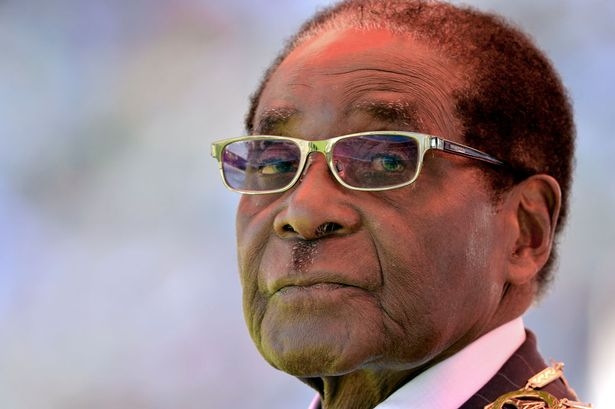 Robert Mugabe
Robert Mugabe
Former Zimbabwen President Robert Mugabe has died.
The longest serving Zimbabwen leader died after battling ill health at a hospital in Singapore on Friday, 6 September 2019.
Mugabe was ousted in a military coup in November 2017.
He was 95.
About Robert Mugabe:
Robert Gabriel Mugabe was a Zimbabwean revolutionary and politician who served as Prime Minister of Zimbabwe from 1980 to 1987 and then as President from 1987 to 2017. He chaired the Zimbabwe African National Union (ZANU) group from 1975 to 1980 and led its successor political party, the ZANU – Patriotic Front (ZANU–PF), from 1980 to 2017. Ideologically an African nationalist, during the 1970s and 1980s he identified as a Marxist–Leninist, although after the 1990s self-identified only as a socialist. His policies have been described as Mugabeism.
Mugabe was born to a poor Shona family in Kutama, Southern Rhodesia. Following an education at Kutama College and the University of Fort Hare, he worked as a school teacher in Southern Rhodesia, Northern Rhodesia, and Ghana. Angered that Southern Rhodesia was a colony of the British Empire governed by its white minority, Mugabe embraced Marxism and joined African nationalist protests calling for an independent state led by representatives of the black majority. After making anti-government comments, he was convicted of sedition and imprisoned between 1964 and 1974. On release, he fled to Mozambique, established his leadership of ZANU, and oversaw ZANU's role in the Rhodesian Bush War, fighting Ian Smith's predominantly white government. He reluctantly took part in the peace negotiations brokered by the United Kingdom that resulted in the Lancaster House Agreement. The agreement ended the war and resulted in the 1980 general election, at which Mugabe led ZANU-PF to victory. As Prime Minister of the newly renamed Zimbabwe, Mugabe's administration expanded healthcare and education and—despite his professed Marxist desire for a socialist society—adhered largely to mainstream, conservative economic policies.
Mugabe's calls for racial reconciliation failed to stem growing white emigration, while relations with Joshua Nkomo's Zimbabwe African People's Union (ZAPU) also declined. In the Gukurahundi of 1982–1985, Mugabe's Fifth Brigade crushed ZAPU-linked opposition in Matabeleland in a campaign that killed at least 10,000 people, mostly Ndebele civilians. Internationally, he sent troops into the Second Congo War and chaired the Non-Aligned Movement (1986–89), the Organisation of African Unity (1997–98), and the African Union (2015–16). Pursuing decolonisation, Mugabe emphasised the redistribution of land controlled by white farmers to landless blacks, initially on a "willing seller–willing buyer" basis. Frustrated at the slow rate of redistribution, from 2000 he encouraged black Zimbabweans to violently seize white-owned farms. Food production was severely impacted, leading to famine, drastic economic decline, and international sanctions. Opposition to Mugabe grew, although he was re-elected in 2002, 2008, and 2013 through campaigns dominated by violence, electoral fraud, and nationalistic appeals to his rural Shona voter base. In 2017, members of his own party ousted him in a coup, replacing him with former Vice President Emmerson Mnangagwa.
Having dominated Zimbabwe's politics for nearly four decades, Mugabe was a controversial figure. He has been praised as a revolutionary hero of the African liberation struggle who helped to free Zimbabwe from British colonialism, imperialism, and white minority rule. Conversely, in governance he has been accused of being a dictator responsible for economic mismanagement, widespread corruption, anti-white racism, human rights abuses, and crimes against humanity.
Coup d'état and resignationOn 6 November 2017, Mugabe sacked his first vice president, Emmerson Mnangagwa. This fueled speculation that he intended to name Grace, his wife as his successor. Grace was very unpopular with the ZANU-PF old guard. On 15 November 2017, the Zimbabwe National Army placed Mugabe under house arrest as part of what it described as an action against "criminals" in Mugabe's circle.
On 19 November, he was sacked as leader of ZANU-PF, and Mnangagwa was appointed in his place. The party also gave Mugabe an ultimatum: resign by noon the following day, or it would introduce an impeachment resolution against him. In a nationally televised speech that night, Mugabe refused to say that he would resign. In response, ZANU-PF deputies introduced an impeachment resolution on 21 November 2017, which was seconded by the MDC-T. The constitution stipulated that removing a president from office required a two-thirds majority of both the House of Assembly and Senate in a joint sitting. However, with both major parties supporting the motion, Mugabe's impeachment and removal appeared all but certain.
As per the constitution, both chambers met in joint session to debate the resolution. The debate took place at a conference centre, since Parliament House was not large enough for a joint sitting. Hours after the debate began, the Speaker of the House of Assembly read a letter from Mugabe announcing that he had resigned, effective immediately. Mugabe and his wife negotiated a deal before his resignation, under which he and his kin are exempted from prosecution, his business interests will remain untouched, and he is set to receive a payment of at least $10 million. In July 2018, the Zimbabwe Supreme Court ruled that Mugabe had resigned voluntarily, despite some of the ex-president's subsequent comments.
Post-presidencyLate in December 2017, according to a government gazette, Mugabe was given full diplomatic status and, out of public funds, a five-bedroom house, up to 23 staff members, and personal vehicles. He further was permitted to keep the business interests and other wealth which he had amassed while in power, and he received an additional payment of about ten million dollars.
On 15 March 2018, in his first interview since removal from the presidency, Mugabe insisted that he had been ousted in a "coup d'état" which must be undone. He stated that he would not work with Mnangagwa and termed Mnangagwa's presidency "illegal" and "unconstitutional". In a lawsuit brought by two political parties, the Liberal Democrats and the Revolutionary Freedom Fighters, and others, the court found that the resignation was legal, and that Mnangagwa, as vice president, duly took over the presidency.[405]
On the eve of the first general election without him in almost thirty years, on 29 July 2018, Mugabe held a surprise press conference, in which he stated that he would not vote for President Mnangagwa and ZANU-PF, the party he founded. Instead, he intended to vote for his long-time rival, the MDC party of Nelson Chamisa.
Illness and deathMugabe died on 6 September 2019, at the age of 95, following several months treating an illness at a hospital in Singapore. He was hospitalized in April 2019, making the last of several trips to Singapore for medical treatment, as he had done late in his presidency and in the months following its end.
Trending News
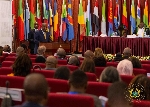
Mahama urges African leaders to redefine wealth around people, not minerals
15:55
3 arrested in connection with lynching of Liberian national in Greater Accra
20:24
Over one million Ghanaians employed in 2025 – Mahama announces at SONA
12:56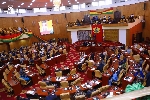
Parliament approves Ghana Accelerated National Reserve Accumulation Policy
18:58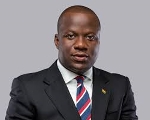
Samuel Abu Jinapor urges focus on youth unemployment, cost of living ahead of SONA
11:27
Abu Trica remanded by Gbese District Court to reappear on March 18
18:51
Charles Amissah: Speaker asks House to consider Emergency Care Law following hit-and-run tragedy
18:30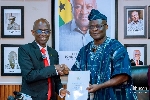
Committee recommends upgrading 12 municipalities and creation of one metropolitan
15:55
Delayed payments push vulnerable households into distress-Civil Society Platform
11:12
KMA cracks down on sale of combustible materials at Kejetia Market
15:28




